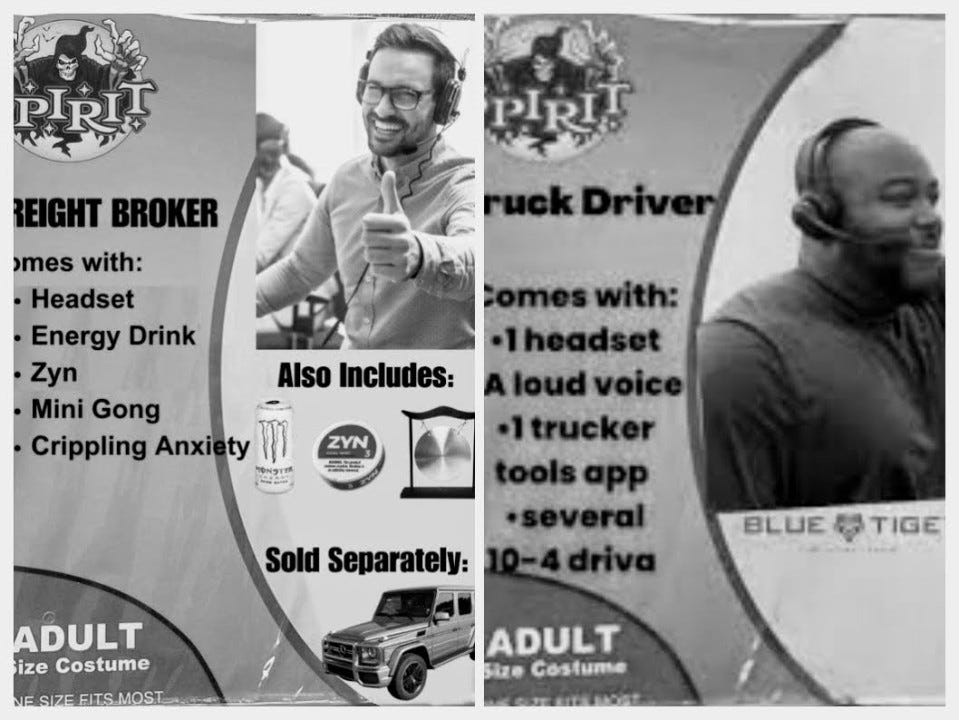Motor Carriers Interlining Freight vs. Freight Brokering - What's the Difference?
The transportation industry involves various processes and roles, each with its unique regs and operational ambiguities. Two common ones are "interlining freight" and "brokering freight." While they may seem similar, they are distinct in their functions and regulatory requirements.
There's even the added, more complicated and contentious piece of the dreaded "Dispatch service," or bona fide agents. I am not touching dispatching services vs brokerages today...no one has the time but I have my thoughts....fortunately, so does the Federal Motor Carrier Safety Administration and you can find their take here https://www.fmcsa.dot.gov/newsroom/fmcsa-issues-final-guidance-clarifying-broker-and-bona-fide-agents-definitions
Motor Carriers Interlining Freight
Interlining freight refers to a practice where different carriers work together to transport goods from origin to destination. This typically occurs when a single carrier cannot complete the delivery due to whatever reason; distance, regulatory constraints, or equipment limitations. The process involves:
-The originating carrier hands over the shipment to another carrier at a predetermined point.
-Both carriers share the responsibility for the safe and timely delivery of the freight.
-Efficient coordination between carriers is crucial to ensure seamless transitions and minimize delays.
Reg Requirements for Interlining Carriers
Carriers involved in interlining must comply with several regulations:
-Each carrier has to have the appropriate operating authority from the FMCSA.
-Carriers have to maintain insurance coverage to protect against liability during their portion of the transport.
-Proper documentation, including bills of lading and transfer records, must be maintained to ensure accountability and traceability of the shipment.
Freight Brokering
Freight brokering involves arranging the transportation of goods on behalf of shippers. Unlike interlining, brokers do not transport goods but connect shippers with carriers.
-Brokers find appropriate carriers to transport goods for shipper clients.
-They negotiate rates and terms between shippers and carriers.
-Brokers manage the logistics, communication, and tracking of shipments.
Regulatory Requirements for Brokers
Freight brokers are subject to specific regulatory requirements:
-Brokers have to have broker authority from the FMCSA to operate.
-They are required to maintain a surety bond or trust fund agreement ($75,000) to protect shippers and carriers from non-payment issues.
-Brokers must keep detailed records of transactions, including contracts, load confirmations, and communication logs.
-I recommend contingent auto and cargo policies as well and tradeline coverage but none of these are required.
The Big Differences
Direct Involvement
-Interlining Carriers
Responsibility
-Interlining Carriers
Regulations
-Interlining Carriers


